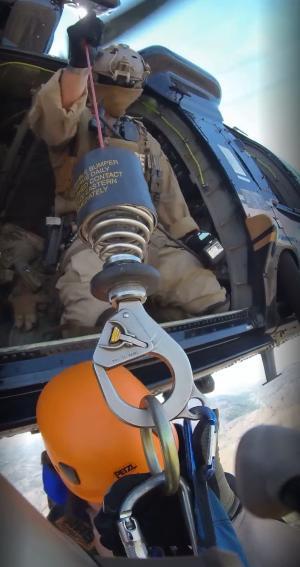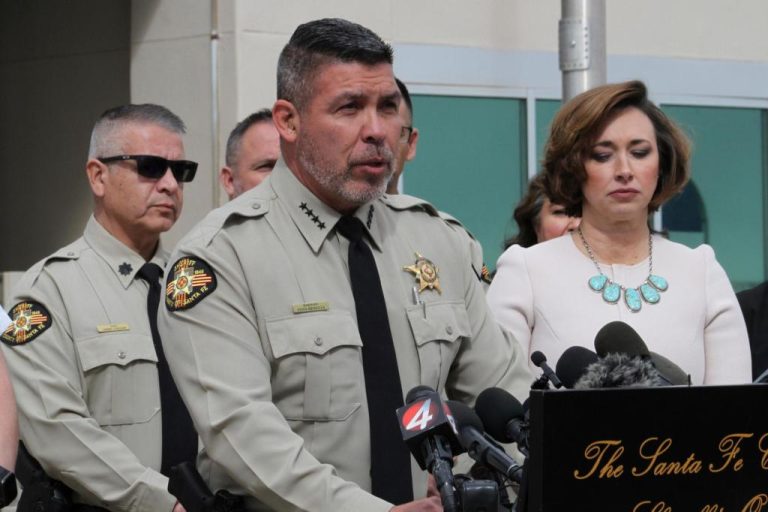
TUCSON, Ariz. — U.S. Customs and Border Protection, Air and Marine Operations and U.S. Border Patrol rescued two U.S. citizens suffering from heat stress near Montana Peak, south of Arivaca, Arizona.
On Monday at approximately 1:10 p.m., the Santa Cruz County Sheriff’s Office contacted the Tucson Border Patrol Station for help responding to two U.S Citizens requesting immediate medical assistance near Montana Peak southwest Arivaca. One person was falling in and out of consciousness and the second person was suffering from extreme heat stress.
Tucson Station Border Patrol agents responded to the area and ascended Montana Peak on foot. More agents followed with emergency medical equipment and the Arizona Air Coordination Center was advised of the situation and air support was requested. At approximately 2:55 p.m., agents contacted the man and a woman and recognizing the critical nature of the situation, began field expedient cooling measures. Agents provided shade with a small tarp and poured cold water from their personal water carriers onto the man and woman. Intravenous therapy was started by a Border Patrol Emergency Medical Technician (EMT) while an immediate air evacuation was requested.
“CBP’s Border Patrol and Air and Marine agents operate daily in the extreme terrain and excessive heat conditions so common in southern Arizona; often with minimal regard for their own safety and well-being,” said John Modlin, Chief Patrol Agent for Tucson Sector. “Border Patrol agents will literally give up the own water off their backs to save a life knowing they still have to hike out of the remote terrain in 100 plus degree heat.”
A UH-60 Black Hawk aircrew launched from the Tucson Air Branch on Davis-Monthan Air Force Base and arrived on scene around 3:45 p.m. The aircrew was able to find the agents and the man and woman in a narrow cut below Montana Peak. Due to the terrain and no suitable place available to land, an Air and Marine Rescue Specialist Emergency Medical Technician and a Border Patrol Search Trauma and Rescue (BORSTAR) paramedic were lowered to the scene using the helicopters hoist to assess the injuries. The Rescue Specialist decided that a hoist rescue was required, and the man and woman were packaged for transport and hoisted to the waiting helicopter.
Due to the fragile state of the patients, the aircrew evacuated the man and woman to Banner University Medical Center for further medical treatment and evaluation.
“During the hot summer months people in the deserts of southern Arizona can quickly succumb to the heat,” said Jose Muriente, Deputy Director of Air Operations, Tucson Air Branch. “In this case, the man and woman were able to realize the situation they were in and contact emergency services and CBP was able to respond to the situation. All too often, people wait too long to call for help.”
Direct link to AMO USBP Tucson Hoist Rescue V-Roll 230703:
https://dvidshub.net/r/f3r9uh
CBP Dangers of the Journey and Rescues feature page:
https://www.dvidshub.net/feature/CBPSAR






